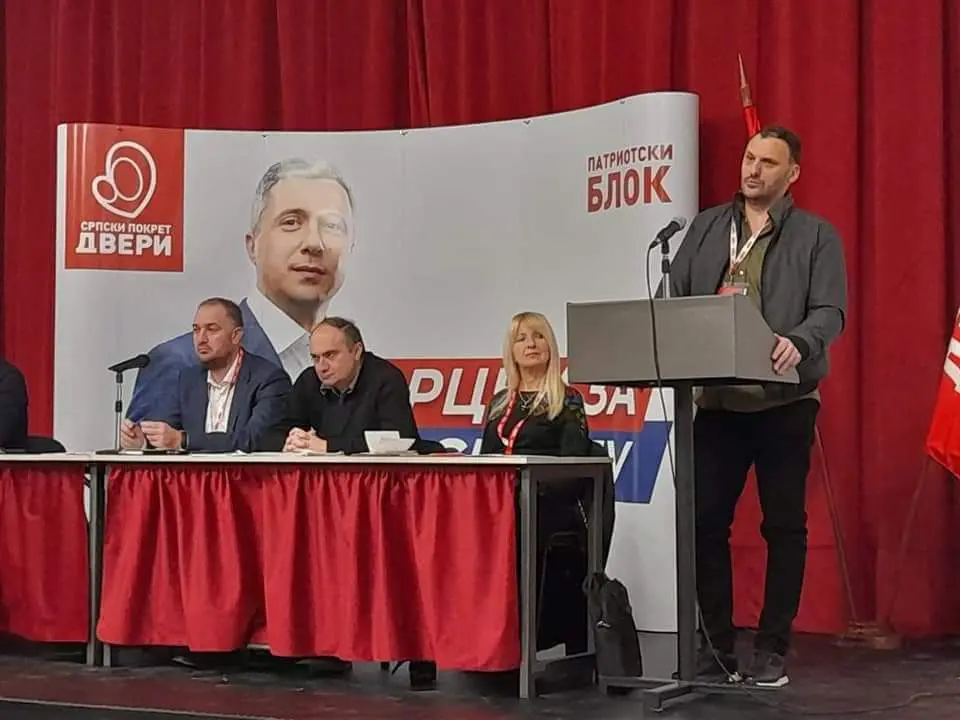
Andrej Mitic, international secretary of the Dveri movement.
The unification of the Serbian right has been a possibility for several months, as three parliamentary formations have displayed increasing convergences: the national-conservative Dveri movement, the Zavetnici party, and the DSS-POKS coalition (New Democratic Party of Serbia and the Movement for the Restoration of the Kingdom of Serbia). In the summer, mass demonstrations in Belgrade against Europride and in favour of family and traditional values showed the strength of patriotic movements and the Orthodox Church, but the driving force of unity has been Kosovo.
At the end of January, Serbian President Aleksandar Vucic spoke of EU ultimatums and pressure from EU envoy Miroslav Lajcak and U.S. envoy Gabriel Escobar to recognise the so-called ‘Franco-German’ plan, a plan prepared two months in advance by all EU countries, including those that do not recognise Kosovo as a state. However, it was later made public that Vucic had agreed on the “concept” and “implementation” of the plan. On 2 February, at the National Assembly session, national-conservative parties unsuccessfully demanded that the plan, which remains a secret to the Serbian public, be exposed for discussion.
After a hectic parliamentary session, the three parties called a meeting in defence of the constitution and national sovereignty in Kragujevac, in central Serbia, a town that symbolises Serbian resistance to the Ottoman Empire. Attendees called for the rejection of the “secret plan” as unconstitutional (the constitution recognises Kosovo and Metohija as an indivisible part of Serbia) and announced the organisation of meetings throughout Serbia and the creation of a new political platform, the National Rally. In addition, more than 200 intellectuals have signed “The St. Sava Manifesto” for the reintegration of Kosovo and Metohija, a call for Serbian ‘reconquest.’
According to Andrej Mitic, international secretary of the Dveri movement, the National Rally is a new national-conservative platform focusing on national sovereignty, traditional family values, Christianity, and opposition to transhumanism, irresponsible immigration policy, and the green and cultural politics of the radical Left. On the international level, the platform opposes the introduction of sanctions against Russia from Serbia and believes that peace negotiations are necessary. The three parties currently have 21 MPs and, at around 15 percent in the polls, represent the second largest political force in Serbia, which is due to hold early elections at the end of the year. This is undoubtedly the reason for the strong campaign unleashed against this union by the government, the left-wing opposition, and its media.
The new National Rally will hold a large meeting on 20 February, closer to Kosovo and Metohija, in the city of Nis—the birthplace of Emperor Constantine, and another symbolic centre of Serbian identity.
